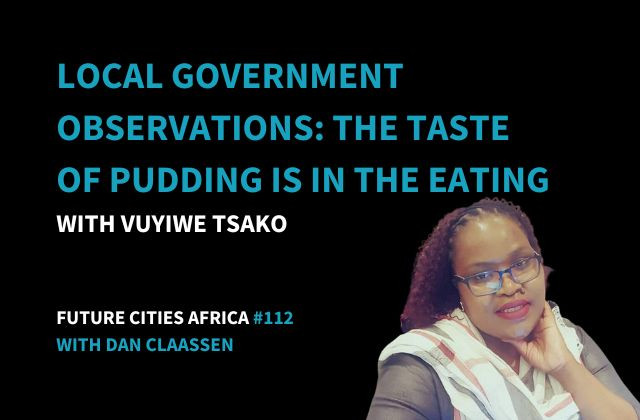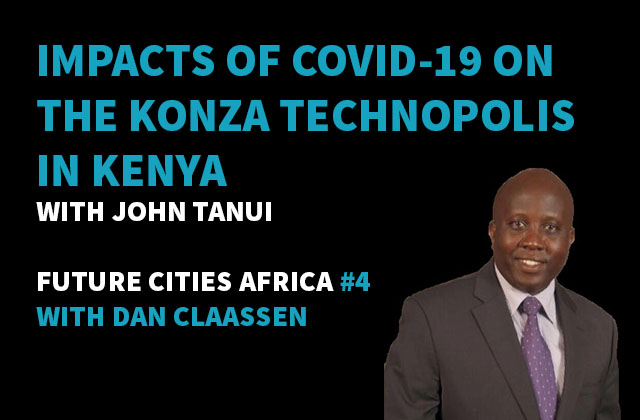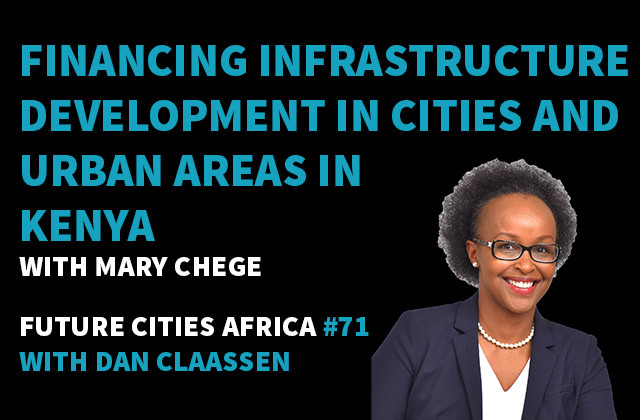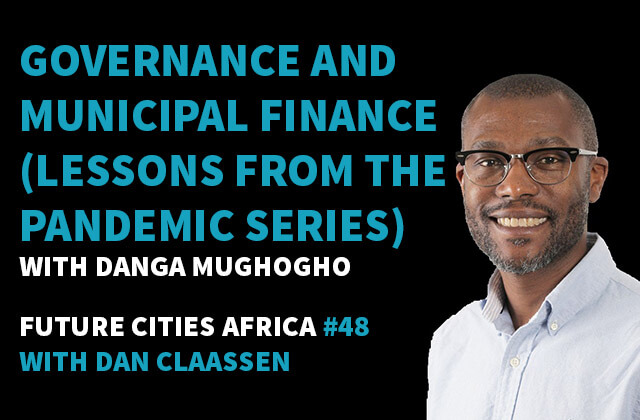Improving Public - Private Sector Collaboration
Nine thought leaders share their insights on how public - private sector collaboration can be improved and how challenges can be overcome.
Summary:
This episode is brought to you in partnership with Digital Council Africa
Steve Apps is a Smart City and Industry 4.0 technology expert. He’s past CTO of Huawei Southern Africa for government services.
- Private participation will only happen if it is profitable.
- Provide opportunities where a profit can be made in important sectors/ areas.
- Private companies will have to be prepared to take on non-profitable projects and see them as total profit over projects and not profit per project.
- The time period for contracts should be looked at, often it is not long enough to provide an impact.
Omeshnee Naidoo is Director of Information Systems and Technology at City of Cape Town.
- Public-Private partnerships will become more and more important in time.
- Both parties need to understand there are value and benefits on both ends.
- The private sector must be willing to stick with it for the long haul.
- Expectations should be managed.
Vino Govender is Executive for Strategy, Mergers & Acquisitions and Innovation at Dark Fibre Africa.
- Understand what capabilities you have within the city and what you require that don’t already exist.
- A clear strategy and the strategic execution plan is the starting point.
- Understand the big inventory items you want, e.g. Funding and Capability.
- Our large metros and even smaller towns are now well-positioned and capable to participate.
Craig Kesson is Executive Director for Corporate Services at the City of Cape Town.
- Different approaches to how we view the legal and contractual relationship of public-private partnerships.
Juanita Clark is the Chief Executive Officer of the Digital Council Africa.
- Internal governmental collaboration since you don’t rely on a single entity, each different entity is delaying the process.
- The inability for timelines to be set to the process.
- Juanita explains the challenges further using examples.
- To solve challenges we need buy-in and adoption of processes and procedures.
Dr. Geci Karuri-Sebina is a multi-disciplinary scholar-practitioner currently occupied in several capacities working at the intersection between people, place and technological change, focusing on the global south.
- We struggle with the urgency to get things done, for many it has been too long.
- Some level of fatigue setting in with many city officials.
- In the urban space, the agenda is not clear it keeps evolving and needs constant engagement.
- Invest more in skill and facilitating stakeholder engagements.
- We need more openness.
- Realise it is for the long haul.
Rehana Moosajee is the founder at The Barefoot Facilitator and a past Member of the Mayoral Committee of the City of Johannesburg.
- The structure of collaboration seems to be ‘’tick box’’ driven and not by authentic conversations.
- Interventions sometimes miss the mark because those making decisions are not on the ground facing the challenges through lived experiences.
- There is no magic wand to solve collaboration challenges. There are no quick fixes to conversations.
- Rehana explains the current conversation and how we can keep the user experience in mind when making decisions.
Thulani Kuzwayo is Co-Founder of PaperThinkLAB and served as the WorldGBC Africa Regional Network Chairperson.
- Coordination is a challenge.
- Relationships between the Public and Private sector must be strengthened to work towards a common goal and vision and incentives should be worked out
- Thulani explains the role of government in decision-making that protects the citizens.
Dr. Marco Macagnano is the Smart Cities Leader at Deloitte Consulting.
- Collectively we are stronger.
- The reinvention of our concept of what constitutes as Intellectual Property of data.
- The more we can share information the more we can create a system of active support.
- Removing siloed operations
- Municipalities should define smart city policy that includes standardisation of information-sharing protocols. Incentivising the private sector and other stakeholders for information sharing so that we can all collectively win
About the Digital Council Africa
Digital technologies offer widespread disruption and will, with it, unlock new opportunities for rapid economic growth, innovation, job creation, and access to services. The goal of the organisation is to stimulate growth in the digital sector by sharing knowledge on this subject with policymakers, operators, and influencers.
The Digital Council's mission is to support the public and private sector to work together to deliver on the expectations of a gigabit society. Through developing the digital transformation stack - we hope to educate and guide all involved in the framework and infrastructure for the next generation of Internet applications and platforms and ultimately to remove the boundaries of technological inclusion.
Visit: https://www.digitalcouncil.africa/
You might also be interested in some of our other discussions

Local Government Observations: The Taste of Pudding is in the Eating
Dr Vuyiwe Tsako is a Local Government Expert with a sound knowledge of administration. We discuss the need to redefine local government culture, key challenges, if true relationships really matter, and much more.
Play Now
Impacts of Covid-19 on the Konza Technopolis in Kenya
Engineer John Tanui is the CEO of Konza Technopolis Development Authority (KoTDA), a semi-autonomous government agency tasked with building Kenya's first smart techno city. We chat about the Konza Technopolis, his worst nightmare of Coivd-19, the impact of Covid-19 on them, rapid urbanisation, new opportunities and what future cities will need.
Play Now
Financing Infrastructure Development in Cities and Urban Areas in Kenya
Episode 3 of the Series focussing on urban governance and how to get it right in managing urban growth in towns and cities in Kenya. Show guest: Mary Chege, Founding Partner of EMSI and Associates. She has over seventeen years' experience in advising on a broad range of transactions across Sub-Saharan Africa.
Play Now
Redefining Urban Mobility in Africa
Justin Coetzee is Founder and CEO of GoMetro. He is a civil engineer by training, with a Masters Degree in Transportation Engineering. We chat about GoMetro’s approach, their projects in Kigali and many other African countries, how Africa can succeed, stakeholder collaboration, legislation he would change and his outlook on key technologies and the future.
Play Now
Governance and Municipal Finance (Lessons from the Pandemic Series)
Danga Mughogho is Programme Manager for Well Governed Cities at South African Cities Network. We explore the State of City Finances 2020 report, impacts of the pandemic on city finances, trends in the affordability of municipal bills, lessons from the report, and implications for municipal finance in the future.
Play Now